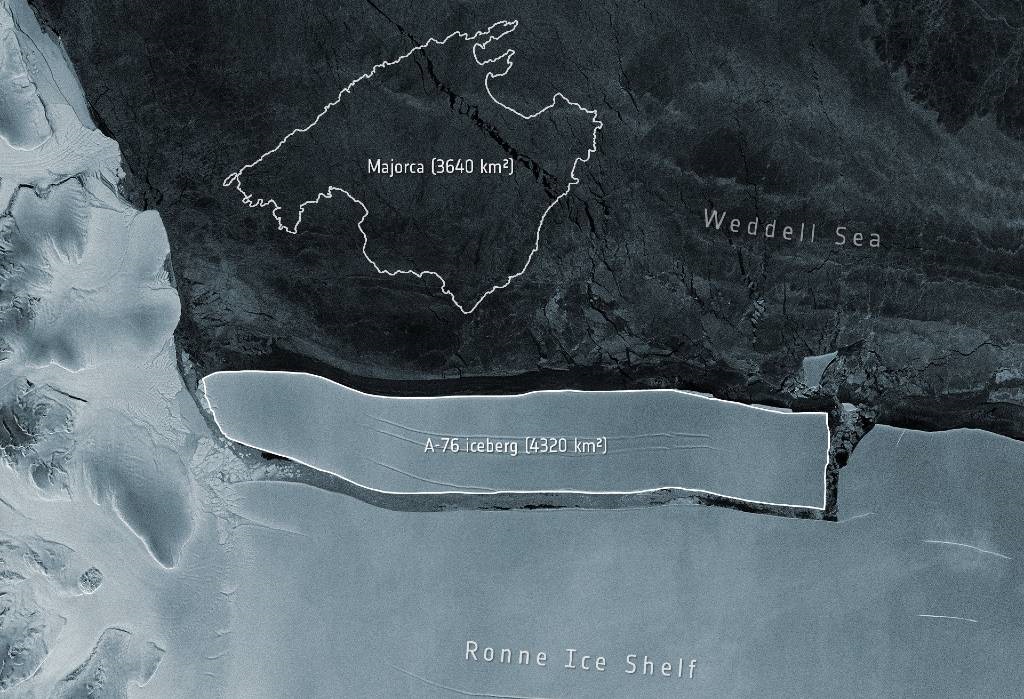
- A gigantic iceberg, called A-76, broke off from the western side of the Ronne Ice Shelf and is floating through the Weddell Sea.
- The iceberg is slightly larger than the island of Majorca, measuring 170km long and 25km wide, with an area of 4 320 square kilometres.
- It takes the place as the world's largest from the A-23A iceberg – approximately 3 880 square kilometres in size.
Paris – A huge iceberg, the world's largest, has broken off from an ice shelf in Antarctica and is floating through the Weddell Sea, the European Space Agency said.
Called A-76 and roughly the shape of Manhattan but more than 70 times bigger, it was picked up on satellite images and is "currently the largest berg in the world", the ESA said on Wednesday.
The iceberg is around 170km long and 25km wide, with an area of 4 320 square kilometres, slightly larger than the Spanish island of Majorca.
The berg, which broke off the western side of the Ronne Ice Shelf, was originally spotted by the British Antarctic Survey and confirmed using images from the Copernicus satellite.
It takes the place as the world's largest from the A-23A iceberg – approximately 3 880 square kilometres in size – which is also in the Weddell Sea.
Rising surface temperature
In November last year, what was then the world's largest iceberg appeared to be on a collision course with a remote South Atlantic island home to thousands of penguins and seals, threatening to impede their ability to gather food.
The iceberg, known as A68a, had also broken off from the Larsen Ice Shelf, which has warmed faster than any other part of Earth's southernmost continent.
A68a, which was 160km long and 48km across, broke up before it could cause any damage to the abundant wildlife in the British Overseas Territory of South Georgia.
Earth's average surface temperature has gone up by one degree Celsius since the 19th century, enough to increase the intensity of droughts, heat waves and tropical cyclones.
But the air over Antarctica has warmed more than twice that much.




 Publications
Publications
 Partners
Partners






















